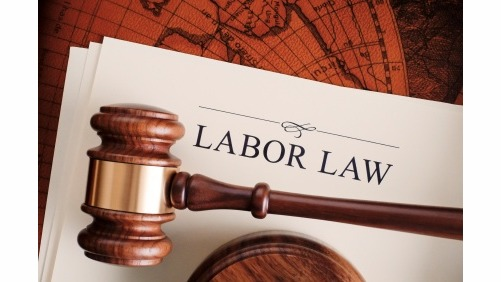In the past, the Department of Labor Wage and Hour Division (WHD) would commonly randomly select employers for compliance audits with the provisions of the Fair Labor Standards Act (FLSA). Random audits have all but ended for a variety of reasons. In recent years, virtually all WHD investigations have resulted from employee complaints.
Referrals by other federal agency or WHD prioritizing a particular industry or geographic area also account for a small number of audits. However, random wage and hour audits may soon be in the picture again. The Biden administration has pledged to aggressively enforce workplace laws and regulations. FLSA wage and hour violations are among the most common employer errors in the workplace. Now is the time for employers to take the necessary steps to ensure their compliance.
The most frequent employer mistake that generates the greatest liability is the misclassification of employees as “exempt” from overtime pay under the so-called “white collar” exemptions. In order to be exempt, an employee must satisfy both a duties test and a salary test. Currently the salary threshold for exempt status is $684 per week ($35,568 annually). The required duties vary for the “administrative,” “professional,” “executive,” “highly compensated,” “computer,” and “outside sales” exemptions. It is the duties requirements rather than the salary requirements that generate most liability to employers, and mistakes under the “administrative” exemption are most common.
A “bona fide administrative employee” must 1) have the primary duty of performing office or non-manual work directly related to the management or general business operations of the employer or its customers, and 2) have a primary duty that includes the exercise of discretion and independent judgement with respect to matters of significance.
It includes work in such areas as finance, budgeting, purchasing, marketing, personnel management, public relations, legal and regulatory compliance, and similar work. Simply because an employee performs a function that is important to the operation and is paid a salary does not provide exempt status. The duties must be related to running the business and include discretionary decisions on significant business matters. If an employee merely applies standard procedures without exercising discretion on matters of importance, they are not exempt no matter how important their duties. Payroll clerks, accounts receivable, bookkeepers, and similar business-related jobs typically don’t exercise sufficient discretion and independent judgement.
Misclassification involving the other exemptions arise less frequently because the required duties are more straight-forward leaving less uncertainty about their application. A “bona fide executive” must manage the enterprise or a recognized department thereof, regularly direct two or more employees, and have the authority to hire and fire or effectively recommend such action.
Cases have arisen where an employee’s duties include some manual or production work, such as stocking shelves. If the employee’s primary duty (50% of their time) is managerial work, the exemption applies. Additionally, while the duties for the “outside sales” exemption are clear, engaging in sales activity away from the employer’s place of business, it is not uncommon for employers to treat inside sales staff as exempt. That would be a classic case of misclassification and would entitle those misclassified employees to overtime pay for each week they worked more than 40 hours, as well as liquidated (double) damages.
Another type of wage and hour complaint that has increased recently off-the-clock work. These claims often involve work-related duties were performed before punching in or after punching out, such as donning/doffing, gathering supplies, or completing paperwork after punching out. Under the Portal-to-Portal act, certain preliminary and postliminary activities are not considered compensable time.
To be considered paid time, the activities must be an integral part of and essential to the employee’s principal activities. Preparing equipment necessary to complete the principal work duties is generally compensable time. Transporting tools and equipment may be paid time depending upon the circumstances. Attending employer-mandated meetings or training is usually considered to be compensable time. Shift-change activities such as roll-calls or instruction meetings have also generally been found to be compensable.
One that has arisen with some frequency was the time spent in security screenings. In 2014 the U.S. Supreme Court ruled that such screenings were not compensable because they were neither a principal activity nor integral and indispensable to the work performed by the employees. Under some state laws, such as California, time spent waiting to go through screening is compensable.
Off-the-clock work claims have arisen in “white collar” settings as well. The potential for such claims may be greater in the white collar setting. It is not uncommon for employees to receive and respond to e-mails or texts after they have left work, sometimes well into the evening and on weekends. No issue exists where exempt employees engage in such activity.
However, when non-exempt employees do so after or before working hours, it is compensable time. This type of unpaid compensable time can lead to backpay owed going back two or three years. Particularly with the constant access to email through cell phones, this activity may take some effort to control.
One measure to consider to limit off-the-clock claims is posting a clear policy that off-the-clock work is prohibited and overtime requires preapproval from a supervisor. While an employer would still be obligated to pay an employee who violates this policy, it could discipline the employee for the violation.
It is not clear when employers may begin to see the aggressive enforcement of workplace laws from the Biden administration. However, by taking the time now to carefully review pay practices and related procedures, employers may be able to avoid at least those wage and hour violations that are the most frequent to arise.
Thanks for reading CPA Practice Advisor!
Subscribe Already registered? Log In
Need more information? Read the FAQs





